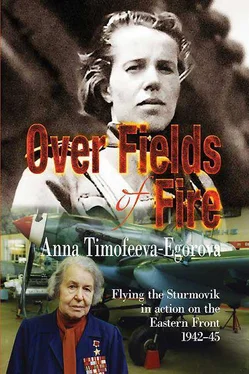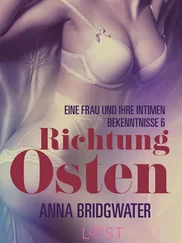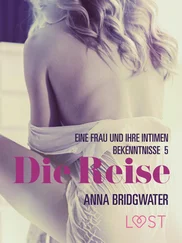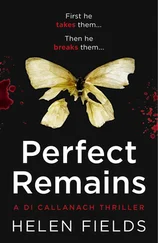“And who are you?” I blurted out, but handed him my certificate. This certificate was quite impressive — issued personally to me it recommended all military units and civil organisations render all assistance to the presenter of this document in the performance of his duties.
“Where are you headed?” the General asked, more politely now.
“To the 9th Army headquarters.”
“Get in the car,” he offered and courteously enquired: “Where did you get burnt?”
I told him what had happened to me and suddenly… burst into tears — I don’t know whether it was from resentment or from pain. My burnt hands hurt really badly and to top it off that captain had stripped off the skin when twisting my arms and now they were bleeding.
“Don’t cry, girl” the General began to calm me down, “otherwise your face will smart from the tears. We’ll get you to 9th Army headquarters in a flash…”
But the “now” and “in a flash” are quite imprecise concepts in war. Only after three hours did we find the Army headquarters where I handed the package over to the head of the operations department. They swabbed my face and dressed my hands in the medical post. They fed me in the canteen and by evening they had sent me off to the aerodrome.
I got a fraternal reception in the squadron. Narodetskiy the Quartermaster even brought me sweets instead of the hundred grams of vodka we were issued with for sorties. He knew that I wasn’t drinking my ration and was giving it away to the mechanic or the pilots and he was trying to give me a treat for the occasion with sweets or something tasty. When we had been based near Voroshilovgrad and living in tents in the forest we didn’t do much flying. Narodetskiy invited me to go on an excursion to Voroshilovgrad once. Having had a look around the city we dropped into a supermarket and there I saw a wide-brimmed hat with a splendid spray of artificial flowers. I stood for a long while admiring it and then the catering officer, catching my gaze fixed on the straw wonder, whispered something with the sales-girl and she handed it over to me… The hat was hung on a nail in my tent. But once I was coming back from a mission and what did I see?… our pet Drouzhok 87 87 Editor’s note — literally, ‘little buddy’.
— a dog travelling with the squadron since we were at the Tikhiy farmstead — in that hat! My brothers in arms had cut holes in it for his ears, tied it on firmly with twine and the dog was rushing about in that stylish apparel, barking. Of course, the pilots were hiding from me in the tents… Then they laughed and Kravtsov scolded me: “That’s for taking presents from the Quartermaster!
Now, when I had returned alive, although with burns on my face and arms and in scorched boots, everyone was happy.
“Don’t feel bad about the plane, Egorova. The main thing is that you are in one piece and you delivered the orders to the troops…” Malikov the squadron engineer soothed me. “And you can always get another plane…”
Of course you could always get another plane. But how bitter and hurtful it was to be shot down and unable to avenge it. The pilots were saying new equipment was coming to the front: Petlyakovs, Yaks, Lavochkins… Every plane was a dream! But I had been greatly impressed by another machine. Only once or twice had I seen it in flight but remembered it always. A small monoplane of classic shape, its wings were slightly swept back. If you looked at it from aside it might seem a torpedo was flying. Legends were circulating about this plane… It flew swiftly just above the very ground and climbed up to the sky like a hawk! The plane was manoeuvrable, with a good field of view, well-protected. There was a lot of talk about it. Once I heard a pilot describing it in glowing terms: “It doesn’t break off into a spin during an uncoordinated turn, on the straight it flies steadily even hands-free. And landing? It almost lands by itself. In a word, it’s as simple as a stool. It won’t let you down in a dogfight and will knock a ground target for six. To cut a long story short — it’s a Sturmovik 88 88 Translator’s note — literally, a ‘stormtrooper’.
”. Of course that was something to get dizzy about.
However, a dream is only a dream, but again I had to fly a U-2 to the 6th and 57th Armies surrounded by the Hitler’s troops. Down there our troops were short of ammo, food and fuel, and there were a lot of wounded men. Attempts to break through the encirclement had come to nothing. The armies suffered heavy losses in men and materiél. Due to reverses in the Barvenkovo-Kharkov area the situation had become quite grave. We were flying a lot as always — and the Fascists pilot were hunting us as before. We were getting our share from the ground as well and we pilots were in trouble.
Having lost their machines, Serezha Spirin and Victor Kravstov returned to the squadron. A badly wounded Vanya Sorokin was sent to hospital. It had been five days since Sborshchikov with his navigator Cherkasov had flown on a mission and not returned…
Naum Sborshikov was a heaven-born pilot! Before the war he had worked as a pilot instructor and taught more than forty students to fly. I’d known him from the times of the Ulyanovsk aviation school where we studied in the same section of the class. Then our paths had diverged but when I arrived at the front and the squadron he welcomed me like one of the family. By nature he was a private, quiet man, but he protected me as much as he could and helped me with everything. When Sborshchikov didn’t come back I couldn’t accept his death for a long while and kept waiting. When five days had gone by everyone stopped waiting — even his plane’s mechanic. I also had little hope for his return and when no one could see it tears would unexpectedly well up in my eyes. I felt sorry for Cherkasov too. An always joyful, smiling fair-haired man of no great height, in his faded blouse and then-fashionable canvas boots — looking at him it was hard to imagine how much suffering had fallen to his lot… He had volunteered to defend Republican Spain and flew in a bomber as navigator. During one of the combat sorties the plane was shot down. The pilot and the navigator were captured by the Fascists and after long interrogation and torture both of them were sentenced to death. But the Soviet Government managed to protect them and just before the War they both returned to the motherland.
“I was born in a shirt 89 89 Translator’s note — a Russian proverb identical to the English “to be born with a silver spoon in one’s mouth”.
”, Cherkasov liked to repeat with a laugh.
How I wanted to believe that the one “born in a shirt” would soon join us with the latest joke he had thought up, at which even gloomy Sborshchikov would laugh. And they came back! They came back completely unexpectedly when we had all given up waiting. Naum’s head was bandaged so that only his eyes were visible through the chinks. There was no boot on his right leg and it was wrapped in something as well, his blouse bore rusty blotches all over it. One of Cherkasov’s arms was bandaged slung on a belt and he was leaning on a big stick with the other…
It was June 1942. The troops of the Southern Front were threatened with encirclement. The enemy had occupied the Donbass and entered the great curve of the Don River, by this move forming a threat to Stalingrad and the North Caucasus. Large masses of troops and materiel had concentrated before the Don river fords. Cattle and tractors were driven to the same crossings. Carts loaded with goods and chattels with children sitting on top waited for their turn as well. This was at night time. At dawn incessant raids by German aviation would begin. Our flak guns would fire near the fords but there were not enough of them. There were hardly any planes in the air with red stars on their wings, so the Hitlerites first bombed, and then with German pedantry strafed the crowds of people from low altitude. It is painful to recall what went on at those crossings. Women yelling, children crying, cattle bellowing… Pandemonium!
Читать дальше












